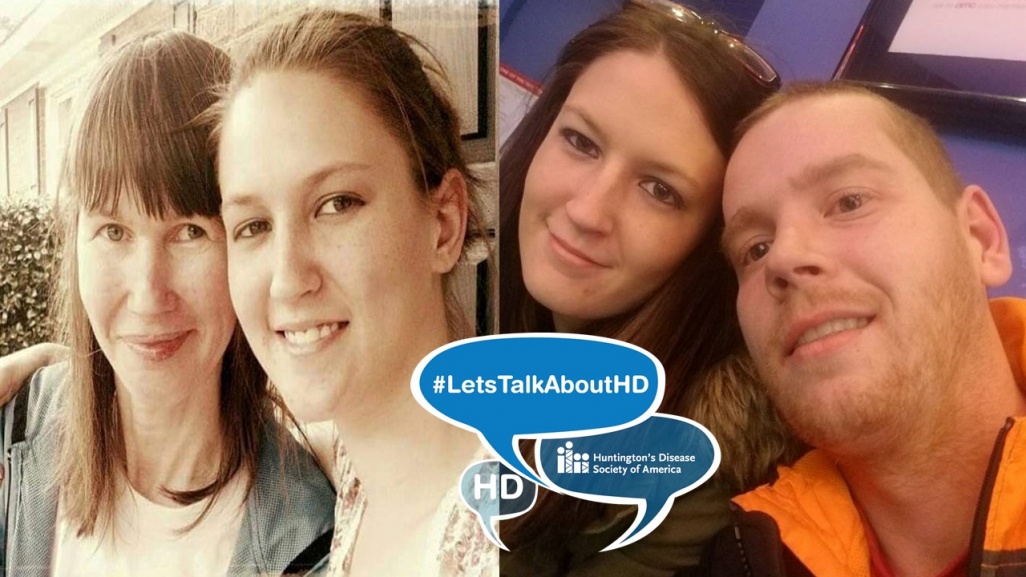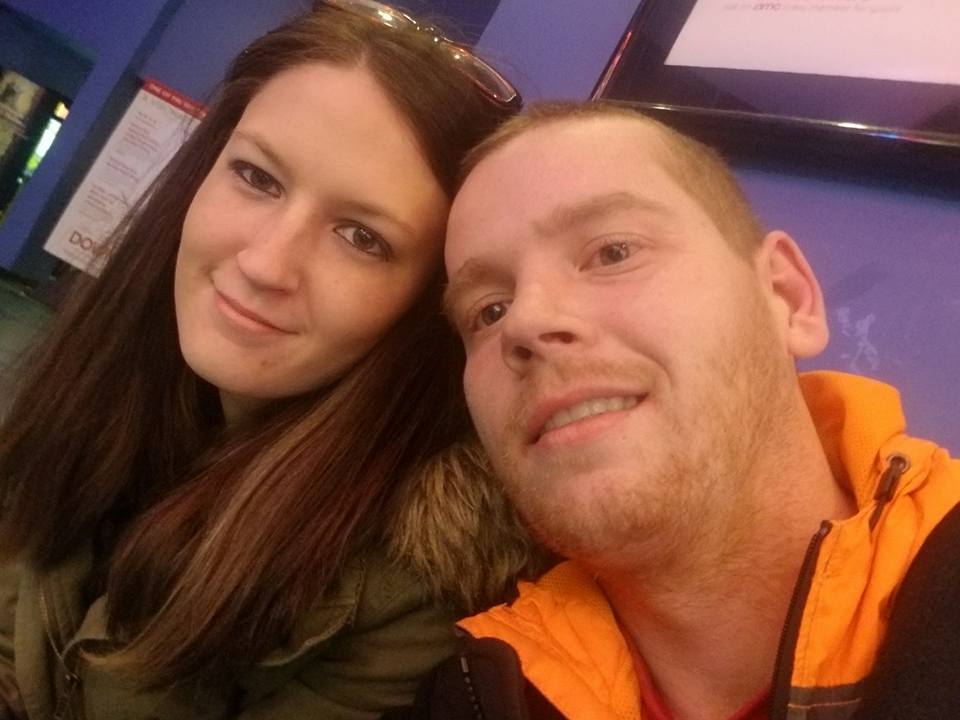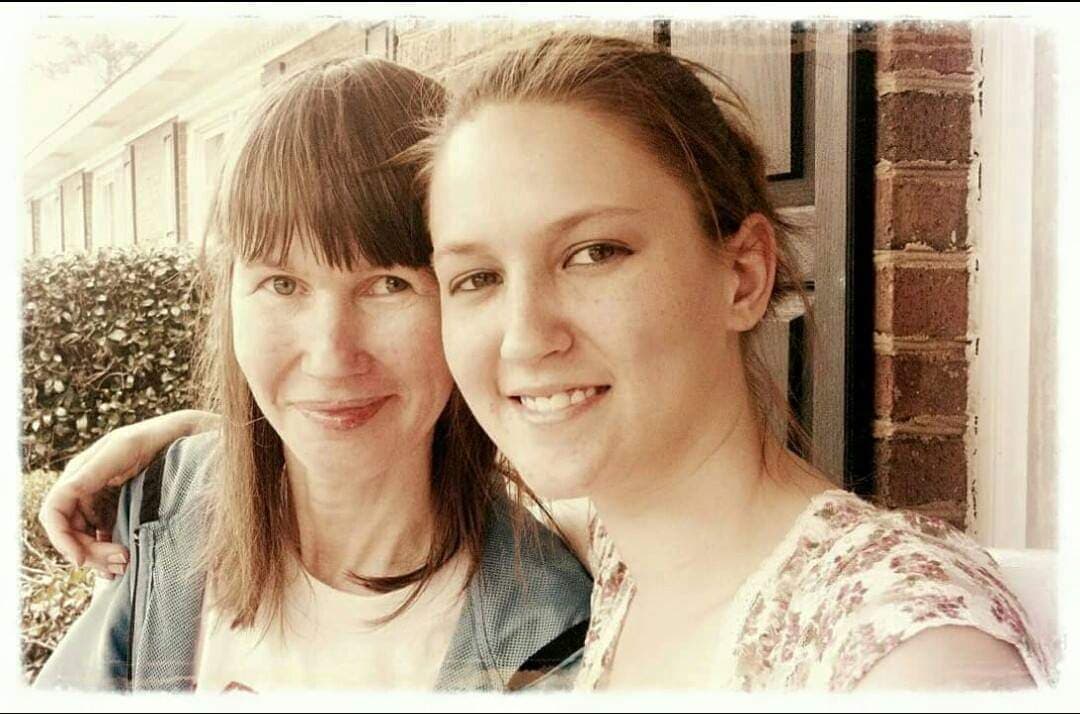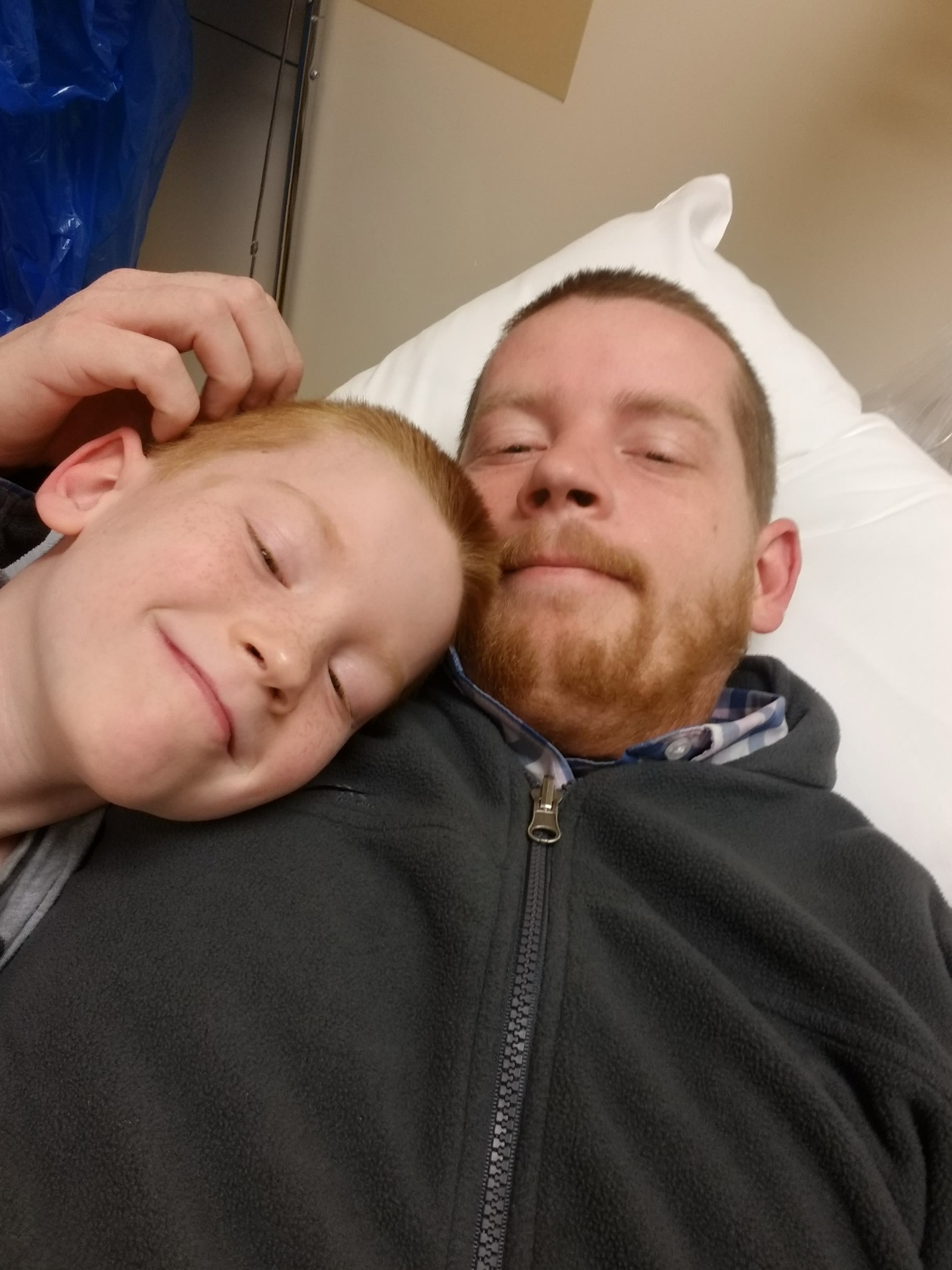
By Matthew Santamaria (msantamaria@hdsa.org)
In 2009, Indiana resident Matt Russell met his future wife, Tesla. They would soon date, but Matt learned more about Tesla and her family.

Tesla is one of five siblings who is at risk for Huntington’s disease (HD). This is a fatal genetic disorder that causes the progressive breakdown of nerve cells in the brain. It deteriorates a person’s physical and mental abilities usually during their prime working years and has no cure.

Every child of a parent with HD has a 50/50 chance of inheriting the faulty gene that causes HD. Tesla’s mother had the disease, but Matt did not see her much as she lived in another state.
Matt would soon learn about the disease but this did not scare him away. In 2016, the couple married before her mother died due to complications from HD. After their two sons were born, Tesla was diagnosed with HD. Tesla told Matt that she did not want to be tested until Matt saw symptoms and changes in her.

The decision to get genetically tested is difficult to make. Each year, 5-10% are tested. It is never the right or wrong decision to be tested. There are people that see no benefit in knowing that they will develop the disease while others want to know in order to make informed choices about their future. It can take up to several weeks to receive your results from the genetic testing center.
They waited a few years and one of the first symptoms she had was memory loss.
HD is described as having ALS, Parkinson’s and Alzheimer’s diseases – simultaneously. Symptoms include personality changes, mood swings, depression, forgetfulness, impaired judgement, unsteady gait, involuntary movements, slurred speech, difficulty in swallowing, and significant weight loss.
According to Matt, Tesla started to develop symptoms in her twenties. This includes mental symptoms and chorea. For example, she is not mentally there in a conversation. She will get angry and not realize it. One of her new symptoms is speech problems which includes her speaking less.
Tesla goes for treatment at Indiana University and the family has praised Dr. Christopher James, Director of Indiana University. This is one of the 50 HDSA Centers of Excellence that provide an elite team approach to HD care and research. Professionals have extensive experience working with families affected by HD and work together to provide families the best HD care program.
Now, Matt is Tesla’s caregiver. He is continually active online with other caregivers as he wants to learn more about HD. He goes to online support groups and wants to help people in the HD community. His goal is to learn more to help his wife. Tesla is the love of his life and he wants to always be there not only for her but for their children who are also at risk for HD.
###
Huntington’s disease is a fatal genetic disorder that causes the progressive breakdown of nerve cells in the brain. It deteriorates a person’s physical and mental abilities usually during their prime working years and has no cure. Every child of a parent with HD has a 50/50 chance of inheriting the faulty gene that causes Huntington’s disease. Today, there are approximately 41,000 symptomatic Americans and 200,000 at-risk of inheriting the disease. In less than 10% of cases, juvenile Huntington’s disease (JHD) affects children & adolescents. JHD usually has a more rapid progression rate than adult onset HD; the earlier the onset, the faster JHD progresses. HD is described as having ALS, Parkinson’s and Alzheimer’s diseases – simultaneously. HD is characterized by a triad of symptoms, including progressive motor dysfunction, behavioral disturbance and cognitive decline.
The Huntington’s Disease Society of America is the premier nonprofit organization dedicated to improving the lives of everyone affected by HD. From community services and education to advocacy and research, HDSA is the world’s leader in providing help for today and hope for tomorrow for people with HD and their families.
To learn more about Huntington’s disease and the work of the Huntington’s Disease Society of America, visit www.HDSA.org or call 1(800)345-HDSA.
This is a story featuring a personal experience with Huntington’s disease. If you would like to have your story told please contact Matthew Santamaria at msantamaria@hdsa.org
In 2009, Indiana resident Matt Russell met his future wife, Tesla. They would soon date, but Matt learned more about Tesla and her family.

Tesla is one of five siblings who is at risk for Huntington’s disease (HD). This is a fatal genetic disorder that causes the progressive breakdown of nerve cells in the brain. It deteriorates a person’s physical and mental abilities usually during their prime working years and has no cure.

Every child of a parent with HD has a 50/50 chance of inheriting the faulty gene that causes HD. Tesla’s mother had the disease, but Matt did not see her much as she lived in another state.
Matt would soon learn about the disease but this did not scare him away. In 2016, the couple married before her mother died due to complications from HD. After their two sons were born, Tesla was diagnosed with HD. Tesla told Matt that she did not want to be tested until Matt saw symptoms and changes in her.

The decision to get genetically tested is difficult to make. Each year, 5-10% are tested. It is never the right or wrong decision to be tested. There are people that see no benefit in knowing that they will develop the disease while others want to know in order to make informed choices about their future. It can take up to several weeks to receive your results from the genetic testing center.
They waited a few years and one of the first symptoms she had was memory loss.
HD is described as having ALS, Parkinson’s and Alzheimer’s diseases – simultaneously. Symptoms include personality changes, mood swings, depression, forgetfulness, impaired judgement, unsteady gait, involuntary movements, slurred speech, difficulty in swallowing, and significant weight loss.
According to Matt, Tesla started to develop symptoms in her twenties. This includes mental symptoms and chorea. For example, she is not mentally there in a conversation. She will get angry and not realize it. One of her new symptoms is speech problems which includes her speaking less.
Tesla goes for treatment at Indiana University and the family has praised Dr. Christopher James, Director of Indiana University. This is one of the 50 HDSA Centers of Excellence that provide an elite team approach to HD care and research. Professionals have extensive experience working with families affected by HD and work together to provide families the best HD care program.
Now, Matt is Tesla’s caregiver. He is continually active online with other caregivers as he wants to learn more about HD. He goes to online support groups and wants to help people in the HD community. His goal is to learn more to help his wife. Tesla is the love of his life and he wants to always be there not only for her but for their children who are also at risk for HD.
Matt has a message for caregivers in the HD Community:
“Have at least one person that you can fully trust to talk to about this. I am doing everything for her, and I leave myself out of it. She is my main concern.”
“Have at least one person that you can fully trust to talk to about this. I am doing everything for her, and I leave myself out of it. She is my main concern.”
###
Huntington’s disease is a fatal genetic disorder that causes the progressive breakdown of nerve cells in the brain. It deteriorates a person’s physical and mental abilities usually during their prime working years and has no cure. Every child of a parent with HD has a 50/50 chance of inheriting the faulty gene that causes Huntington’s disease. Today, there are approximately 41,000 symptomatic Americans and 200,000 at-risk of inheriting the disease. In less than 10% of cases, juvenile Huntington’s disease (JHD) affects children & adolescents. JHD usually has a more rapid progression rate than adult onset HD; the earlier the onset, the faster JHD progresses. HD is described as having ALS, Parkinson’s and Alzheimer’s diseases – simultaneously. HD is characterized by a triad of symptoms, including progressive motor dysfunction, behavioral disturbance and cognitive decline.
The Huntington’s Disease Society of America is the premier nonprofit organization dedicated to improving the lives of everyone affected by HD. From community services and education to advocacy and research, HDSA is the world’s leader in providing help for today and hope for tomorrow for people with HD and their families.
To learn more about Huntington’s disease and the work of the Huntington’s Disease Society of America, visit www.HDSA.org or call 1(800)345-HDSA.
This is a story featuring a personal experience with Huntington’s disease. If you would like to have your story told please contact Matthew Santamaria at msantamaria@hdsa.org
